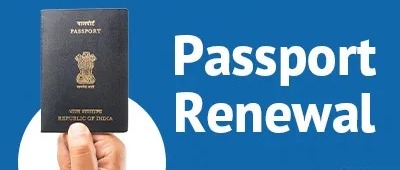Harish Tandon, J.@mdashThis revisional application is directed against an order No. 2 dated 25.11.2011 passed by the learned District Judge, Alipore in Title Suit No. 1536 of 2011.
2. The present revisional application is at the instance of the defendant/opposite party assailing and/or challenging the ex-parte ad-interim order of injunction passed u/s 9 of the Arbitration and Conciliation Act, 1996.
3. The point which emerges for consideration is whether the revisional application under Article 227 of the Constitution is maintainable when there is an alternative efficacious remedy by way of a statutory appeal u/s 37 of the said Act.
4. Before dealing with the aforesaid point, short facts are necessary to be narrated. The plaintiff/opposite party filed an application u/s 9 of the Arbitration and Conciliation Act praying for an order of injunction restraining the petitioner from invoking or encashing the Bank Guarantees. The Trial Court passed an ex-parte ad-interim order of injunction on the above terms for a limited period i.e. till 21.12.2011.
5. According to the petitioner the unconditional Bank Guarantee is valid till 20.12.2011 and the trial court passed an interim order which is operative till 21.12.2011 and as such the petitioner is precluded from invoking the Bank Guarantee which is not permissible under the law.
6. Although the said point has been taken but this court invited the submission from the respective Counsels relating to the exercise of the powers under Article 227 of the Constitution of India when the statute provides for an appeal against such an order.
7. Mr. Siddhartha Mitra, the learned Advocate appearing for the petitioner submits that the power of superintendence of the High Court under Article 227 can be exercised to keep the inferior court within the boundaries of law. He further submits that the High Court under supervisory jurisdiction can interfere with the order of the inferior tribunals or court, if the same is passed beyond its jurisdiction, refusal to exercise jurisdiction, arbitrary or a capricious exercise of authority or discretion, finding which is perverse and the error of law apparent on the record. In support of the aforesaid contentions he placed reliance upon the judgment of the supreme court in case of8. Mr. Aninda Mitra, the learned Advocate General submits that the High Court should not exercise jurisdiction under Article 227 of the Constitution if there is an efficacious alternative remedy by way of a statutory appeal is provided. He further submits that the court shall refuse to exercise the power under Article 227 of the Constitution to maintain the hierarchy of appeal and placed reliance upon the judgment of the Apex Court in case of
9. Having considered the respective submissions of the Counsels, there is a specific provision u/s 37 of the Arbitration and Conciliation Act, 1996 which provides an appeal against an order passed u/s 9 of the said Act. It would be profitable to quote Section 37 of the said Act which read thus:
37. Appealable orders.-(1) An appeal shall lie from the following orders (and from no others) to the Court authorised by law to hear appeals from original decrees of the Court passing the order, namely:-
(a) granting or refusing to grant any measure u/s 9;
(b) setting aside or refusing to set aside an arbitral award u/s 34.
(2) An appeal shall also lie to a Court from an order granting of the arbitral tribunal.-
(a) accepting the plea referred in sub-section (2) or sub-section
(3) of section 16; or
(b) granting or refusing to grant an interim measure u/s 17.
(3) No second appeal shall lie from an order passed in appeal under this section, but nothing in this section shall affect or take away any right to appeal to the Supreme Court.
10. On meaningful reading of the said provision it does not make any differentiation between an ex-parte ad-interim order of injunction or an ad-interim order of injunction or a final order of injunction u/s 9 of the said Act.
11. It is undisputed that while considering an application u/s 9 of the Arbitration and Conciliation Act, the court must adhere to the provision of Order 39 of the CPC wherein Order 39 Rule 3 cast a mandate upon the court to record the reason for granting ex-parte ad-interim order of injunction. If the court did not comply the mandatory provision of recording a reason by passing an ex-parte ad-interim order the said order is illegal, erroneous but cannot be said to be an order passed without jurisdiction. Omission of the Court to adhere the statutory provisions cannot make an order per se without jurisdiction nor can it be termed to be a manifest in justice caused to the parties. Such an order is capable of being corrected and /or quashed and/or set aside by an appellate court in a statutory appeal. The power under Article 227 of the Constitution of India should be exercised in an extreme and/or exceptional circumstances. There is no quarrel to the proposition of law as indicated by the petitioner that the High Court can interfere under Article 227 of the Constitution in case of an erroneous assumption or acting beyond its jurisdiction or refusal to exercise jurisdiction, error of law apparent on record as distinguished from a mere mistake of law or an arbitrary or capricious exercise of authority or discretion but the high court should make a self-imposed restrictions in exercise of the powers under Article 227 if the erroneous, illegal order is capable of being corrected by the appellate jurisdiction under the statute.
12. None of the judgments cited by the petitioner considered such eventuality where in spite of the existence of the provision of an appeal the court have exercised the power under Article 227 of the Constitution. It is to be borne-in-mind that the power of superintendence under Article 227 is not ousted and/or taken away even if there is a provision of an appeal under the statute but the high court should refrain from entertaining an application in supervisory jurisdiction to ensure the hierarchy of appeal. The Apex Court in case of Achutanda Baidya (supra) while considering a matter where after exhaustion of the appellate Forum the matter is challenged in a revisional application under Article 227 of the Constitution.
13. Thus it was not a case of jumping of forum by invoking under Article 227 of the Constitution. The Supreme Court in case of Extralla Rubber (supra) while reiterating the power of superintendence under Article 227 held that the same should be exercised sparingly and only in appropriate cases to keep the subordinate courts and tribunals within the bounds of their authority and not for correcting mere errors by converting itself into a court of appeal. Furthermore, in case of Surya Dev Rai(supra) the Supreme Court held that the care, caution and circumspection need to be exercised while invoking the supervisory jurisdiction by the court against an error calling for correction if it is found that the same is also capable of being corrected in an appeal. It has been pointed out in case of Raj Kumar Shivhare (supra) that where a right of liability created by a statute which gives a speedy remedy, then such remedy must be availed of and the court must imposed self-limitation to exercise the supervisory jurisdiction or writ jurisdiction. In case of Prabir Kumar Nath (supra) this court was considering an application under Article 227 of the Constitution of India against an ad-interim order of injunction passed under Order 39 of the CPC where the trial court did not record the reason as envisaged under Order 39 Rule 3 of the Code, while rejecting the said application this court held that the power of superintendence of the high court refers to an overall guardianship, a power of checking in general of the performance of the lower courts but the mistake of law if committed by the trail court does not give unbridle power of superintendence to the high court to correct the same in these words:
11. There is another aspect of the matter. In the said judgment
14. Thus, mere omission to record the reason as provided under Order 39 Rule 3 of the Code is not a case of rare of rarest for invocation of supervisory jurisdiction when there is a remedy by way of an appeal provided under the statute. The petitioner cannot jump the appellate Forum and invoke the supervisory jurisdiction under Article 227 of the Constitution.
15. Thus, this court feels that the instant revisional application is not entertainable in view of an existence of alternative efficacious remedy by way an appeal under the Arbitration and Conciliation Act, 1996.
16. The revisional application is, therefore, dismissed.
17. The petitioner is permitted to take back the certified copy of the impugned order upon replacement of the Photostat copy thereof and the concerned officer is directed to return the certified copy if the Photostat copy is furnished by the petitioner.
18. There shall, however, be no order as to costs.

